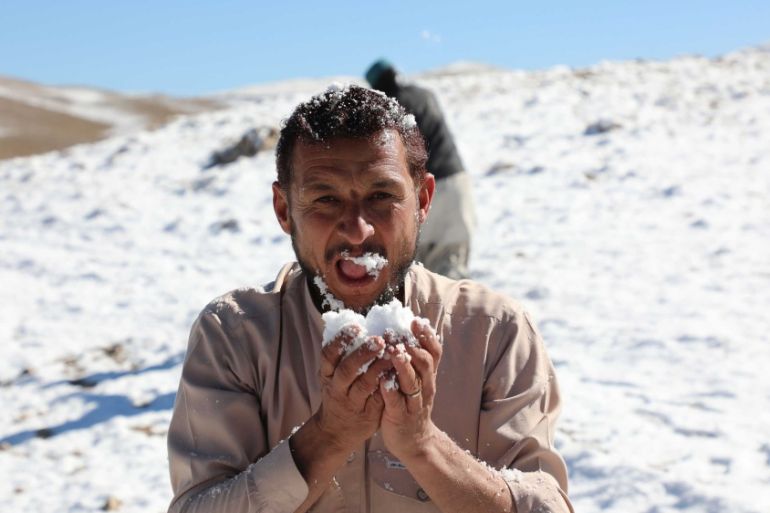Heavy rain, snow paralyses life in parts of Pakistan
From Karachi to Swat, rain and snow brought life to a standstill.

The same cold front that swept south through the Arabian Peninsula, bringing a widespread dust storm from Egypt to Saudi Arabia, Bahrain, Qatar, Iran and the United Arab Emirates, has brought heavy rain to Pakistan.
On Sunday night, it rained in Karachi, a rarity in January.
Keep reading
list of 4 itemsAre seed-sowing drones the answer to global deforestation?
Rainfall set to help crews battling wildfire near Canada’s Fort McMurray
How India is racing against time to save the endangered red panda
The average rainfall is 9mm for January but by dawn on Monday, 38mm had fallen. It flooded many streets and plunged large swaths of the metropolis into darkness as the ground-mounted electricity transformers stopped working.
At least one person died from electrocution.
Thunderstorms brought rain to many other parts of Pakistan because the cold front stretched from south to north.
According to Dawn.com, rain, hailstorms and snowfall in Balochistan broke the long dry spell that had created drought-like conditions in at least 20 districts.
Heavy snowfall disrupted life and traffic in some northern parts of the province and brought flooding to its capital, Quetta.
Snow fell in the north as well. The mountainous areas in Swat, Upper Dir and Shangla reported heavy snowfall. A significant fall of 33cm covered Kalam in the Swat Valley.
According to The News, one person died and three others were injured in a landslide in Kohistan district, as rain and snowfall paralysed life in mountainous areas of Khyber Pakhtunkhwa province on Sunday.
The weather is spreading east and over the border. The Indian Met Department has issued warnings of heavy or very heavy rain and snow for Jammu and Kashmir and Himachal Pradesh.
More than one metre of snow is expected. These warnings extend into Uttarakhand for Tuesday.
Jammu and Kashmir has already reported a 20 percent excess of precipitation for the month. In Srinagar, it has rained or snowed virtually every day this year.
So far 90mm have been recorded and the January average is 48mm.